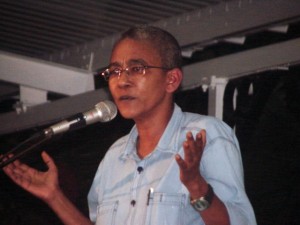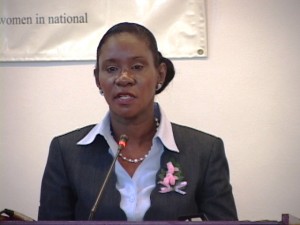By Tiffany Bowen

Government’s recent tabling of a bill that will give common-law partners rights to inheritance is welcome news for some women activists who said that the legislation would not only help women who suffer most in these relationships, but also children who are born of such unions.
The bill stipulates that in the union of a single individual, man/woman, who dies within five years of the relationship, the remaining member will inherit benefits similar to those that would have occurred in a formal union.
Human Services Minister Jenifer Webster in an interview pointed out that such legislation has been long overdue, but she is excited about it becoming a reality. She said the Human Services Ministry is fully behind the legislation and believes deeply that it will serve women well.
Red Thread Director Karen De Souza noted that to have such a bill in principle “is a very good move”, but she also believes relationship and inheritance laws should be thoroughly reviewed. “It is those kinds of things that need more discussion and keen analysis in that there are lots of untidiness in our relationships, and it would not be right if the law-makers did not explore all these options.”
De Souza added that failing to have such analysis done would be like putting a bandaid on an already contaminated wound. She hopes that when the new bill is passed by the National Assembly, it is not in conflict with other similar bills. De Souza, who for years has been advocating for the rights of women, hopes too that lawmakers when drafting the bill, takes into consideration that it should not be a shortcoming for a woman to be in a common-law relationship and not marriage.
De Souza also questioned what will happen to women involved in common-law unions for years with men who are only separated from their legal wives.
“There are cases where women live for years with a married man and when he dies, the wife comes and claim everything, that in itself does no justice,” said De Souza. The bill only legalises inheritance if the deceased partner was single, but what is more important is what happens if the man was just separated from his wife, needs more analysing.




